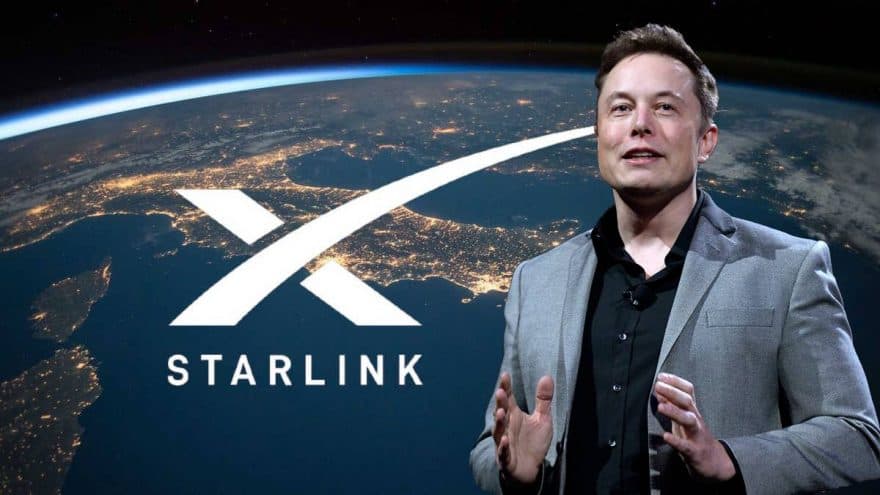We're loading the full news article for you. This includes the article content, images, author information, and related articles.
Following months of public opposition, a new Africa-wide agreement signed by parent company Vodacom positions Safaricom to resell Starlink's satellite internet, targeting Kenya's underserved regions and enterprise clients.

In a significant reversal of its previous stance, Safaricom PLC is set to become a reseller of Starlink's satellite internet services in Kenya. This development comes after Safaricom's parent company, Vodacom Group, announced a landmark Africa-wide agreement with SpaceX on Tuesday, November 12, 2025. The deal authorizes Vodacom and its subsidiaries, including Safaricom, to resell Starlink's high-speed, low-latency satellite equipment and services to enterprise and small business customers across the continent.
The partnership marks a strategic pivot for the Kenyan telecommunications giant, which had spent the better part of the previous year openly challenging Starlink's independent entry into the market. Safaricom had formally petitioned the Communications Authority of Kenya (CA), warning that licensing satellite providers without requiring them to partner with local operators could lead to illegal connections and cause "harmful interference" to mobile networks. The telco argued that such independent operations would be difficult to regulate and could pose security risks.
Starlink officially launched its services in Kenya in July 2023, immediately disrupting the local internet market with competitive pricing and the promise of high-speed connectivity in remote areas beyond the reach of terrestrial fibre. The service quickly gained traction, with subscriber numbers growing from just 405 in June 2023 to over 4,808 by March 2024, according to CA data. This rapid uptake prompted a competitive response from Safaricom, which significantly increased speeds on its home fibre packages in September 2024 to protect its market share.
Despite the public friction, by late September 2024, Safaricom CEO Peter Ndegwa had signaled a potential thaw in relations. In interviews, Ndegwa stated that Safaricom was open to discussions with satellite providers, including Starlink, viewing their technology as a complementary solution for connecting rural and underserved areas where fibre deployment is not economically viable. This set the stage for the continent-level agreement signed by Vodacom.
Under the new deal, Safaricom will integrate Starlink's satellite backhaul into its network to enhance coverage in remote regions of Kenya and Ethiopia. While specific product offerings and rollout dates for the Kenyan market have not yet been announced, a senior Safaricom official, speaking to the Daily Nation on Tuesday, November 18, 2025, confirmed the company is awaiting official communication from Vodacom to establish a timeline.
The collaboration is poised to reshape Kenya's digital landscape, particularly for enterprise clients in sectors like agriculture, mining, and tourism operating in remote locations. For Safaricom, it provides a capital-efficient way to expand its service map without extensive investment in new fibre infrastructure, directly addressing the digital divide.
The latest data from the Communications Authority for the third quarter of the 2024/2025 financial year (January-March 2025) shows that fixed internet subscriptions grew by 8.1% to 1.86 million. However, in a surprising turn, satellite subscriptions reportedly dropped by 9.9% during this period, a detail attributed to reduced usage of Starlink. This followed a period of rapid growth where Starlink had amassed over 19,000 subscribers by December 2024. The new partnership could reverse this trend and accelerate satellite internet adoption.
A key regulatory question remains unresolved. In January 2025, the Communications Authority proposed a drastic increase in the 15-year license fee for satellite internet providers, from approximately KSh 1.6 million ($12,302) to KSh 15 million ($115,331), plus an annual levy of 0.4% of gross turnover. This move was seen as potentially creating higher barriers to entry for smaller players and favoring established incumbents. The final decision on whether this proposal was adopted, amended, or rejected remains unconfirmed. FURTHER INVESTIGATION REQUIRED.
This strategic alliance between a market incumbent and a disruptive new entrant signifies a maturing digital ecosystem in Kenya. For consumers and businesses, especially those outside major urban centers, the 'peace deal' between Safaricom and Starlink promises a new era of enhanced connectivity and choice, pending the final details of the local rollout.
Keep the conversation in one place—threads here stay linked to the story and in the forums.
Sign in to start a discussion
Start a conversation about this story and keep it linked here.
Other hot threads
E-sports and Gaming Community in Kenya
Active 9 months ago
The Role of Technology in Modern Agriculture (AgriTech)
Active 9 months ago
Popular Recreational Activities Across Counties
Active 9 months ago
Investing in Youth Sports Development Programs
Active 9 months ago
Key figures and persons of interest featured in this article